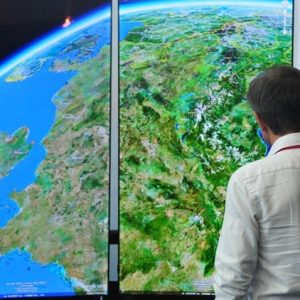Description
In today’s rapidly urbanizing world, the concept of smart cities has emerged as a pivotal solution to address the challenges posed by urban growth while ensuring sustainable development. This course delves deep into the principles, technologies, and strategies underpinning intelligent cities, aiming to equip participants with a comprehensive understanding of how cities can leverage innovation to become more efficient, resilient, and livable.
Key Learning Objectives:
- Understanding Smart Cities: Participants will gain insights into the definition and core components of smart cities, including integrating digital technologies, data analytics, and IoT (Internet of Things) solutions to enhance urban operations and services.
- Sustainability and Urban Development: The course explores the relationship between smart cities and sustainable development goals (SDGs), emphasizing how intelligent technologies can contribute to environmental sustainability, resource efficiency, and equitable socio-economic growth.
- Technological Foundations: Participants will learn about the foundational technologies driving smart cities, such as sensor networks, AI (Artificial Intelligence), blockchain, and cloud computing. Case studies and real-world examples will illustrate successful implementations and potential challenges.
- Policy and Governance: The course examines the role of governance structures, policy frameworks, and public-private partnerships in fostering intelligent city initiatives. It addresses regulatory considerations, data privacy concerns, and ethical implications of innovative city technologies.
- Community Engagement and Stakeholder Collaboration: Effective innovative city projects require active engagement with communities and collaboration among diverse stakeholders. Participants will explore strategies for citizen participation, inclusivity, and civic engagement in shaping sustainable urban environments.
- Urban Resilience and Future Trends: The course discusses strategies for building resilience against natural disasters, climate change impacts, and other urban challenges through intelligent infrastructure and adaptive planning. It will also analyze emerging trends in innovative city development, such as autonomous vehicles and innovative grid systems.
Who Should Attend:
This course is designed for urban planners, policymakers, engineers, architects, environmentalists, technology innovators, and anyone interested in the future of urban development and sustainability. It suits professionals looking to enhance their knowledge and skills in leveraging technology to create more intelligent, sustainable cities.
Format:
The course combines lectures, case studies, interactive discussions, and practical exercises to provide a dynamic learning experience. Participants will have opportunities to engage with industry experts, explore cutting-edge technologies, and collaborate on project-based assignments to apply their knowledge in real-world scenarios.







Dayo –
I thoroughly enjoyed the Smart Cities for Sustainable Development course! It provided a holistic view of smart city concepts, covering not only the technological aspects but also the social, economic, and environmental implications. The guest lectures from industry experts were insightful, offering diverse perspectives on the challenges and opportunities in this rapidly evolving field.
Cyril –
I enrolled in this course out of curiosity about smart cities and left with a deep appreciation for their potential to create more livable, sustainable urban environments. The instructors did an excellent job of breaking down complex topics into digestible chunks, and the interactive discussions with fellow learners enriched the experience further. The content was up-to-date with the latest trends and technologies, making it a must for anyone interested in the intersection of technology and urban development.
Jonah –
As a city planner, this course was invaluable in expanding my understanding of smart city technologies and their potential impact on sustainability. The modules were well-structured, covering everything from IoT and data analytics to urban mobility and energy management. The hands-on projects were challenging yet rewarding, allowing me to apply what I learned to solve real urban challenges.
Falilat –
This course exceeded my expectations in every way. The content was comprehensive yet accessible, catering to both beginners and those with some background in urban planning or technology. I appreciated the emphasis on sustainability and inclusivity throughout the course. The instructors were responsive to questions and provided valuable feedback on assignments.